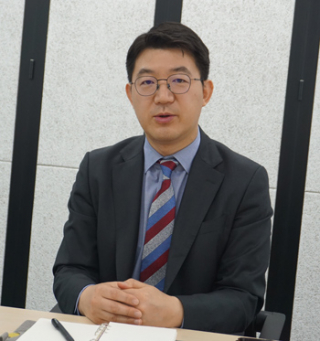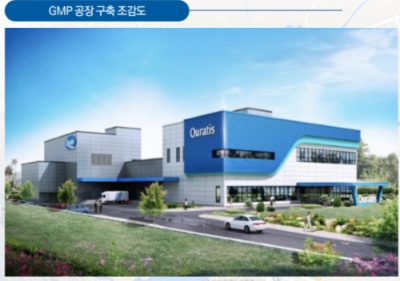기업
Quratis develops tuberculosis vaccines for adolescents and adults
by Jongwon Jang
Quratis plans to complete the phase 2a clinical trial in Korea and enter a phase 2b clinical trial in 2020. It will construct a research institute in Osong with an annual capacity of 2 million doses.

Quratis is a bio venture that is taking up the challenge of developing tuberculosis vaccines for adolescents and adults whose immunity from BCG vaccine wanes.
Quratis, which started from Yonsei University Medical Hospital in 2016, has secured the license to sell the anti-tuberculosis vaccine “QPT101” to 17 Asian countries.
Based on this, Quratis is accelerating the speed of clinical trials for the development of tuberculosis vaccines for adults (phase 2a) and adolescents (phase 1) in South Korea.
One of the advantages of this substance is that IDRI has already completed not only the phase 1 clinical trial in the United States, but also the phase 1b and 2a clinical trials, also in the US. Quratis has obtained a good opportunity to develop and commercialize a vaccine of which the safety and efficacy has already been proven by clinical trial.
Quratis’s tuberculosis vaccine “QPT101” is composed of antigens and the immune adjuvant GLA-SE. Its vaccine antigen “ID93” is a subunit of four major tuberculosis antigens, including virulence and latency.
The key competitiveness of GLA-SE comes from the immune adjuvant GLA-SE, which is a synthetic agent that is produced by improving the immune adjuvant MPL that is widely used in commercially available vaccines (GSK Cervarix, Shingrix, etc.). GLA-SE acts on TLR-4 to activate the immune system.
“When we measured immune responses by applying GLA to vaccines for other diseases in a clinical trial, it was found that GLA could obtain enough immune responses with a small amount of 40 times less than the existing vaccines”, said the company. In addition, the secretions of TNF, IL-6, IL-12, and other immune-activated cytokines were also found to be higher in GLA than in MPL. Another source of competitiveness is that the number of subjects who participated in the clinical trial of GLA amounts to almost 1,000 people.
It is also noteworthy that GLA is a synthetic material that is similar to a natural product. Managing director Choi Yoo-Hwa said, “GLA is easy to synthesize and to produce materials with excellent purity. These advantages are closely related to cost competitiveness.”
Quratis has started constructing a GMP-level tuberculosis vaccine research and production facility in Osong in North Chungcheong Province, South Korea. With a total project budget of about 40 billion won and at a site with an area of 19,918 m2, the pharmaceutical company will build a research facility for tuberculosis vaccine and immune adjuvant, together with a production facility with an annual capacity of 2 million doses of liquid or freeze-dried injectables. The construction will be completed by 2020, and the company plans to start producing medicines for clinical trials in the second half of 2020. Therefore, it will serve as a foothold to conduct domestic clinical trials planned for the future, and to supply medical agents for domestic clinical trials, and also for global clinical trials.
CEO Jo Kwan-Gu, who worked as the US branch manager of LG Life Sciences, and as the business development director of Zuellig Pharma Korea, ventured into vaccine development at Quratis. Mr. Jo said, “Quratis receives the already proven substance from IDRI, and is speeding up commercialization. Once it is successfully commercialized, it will contribute to improving public health in Asian countries that show an extremely high prevalence of tuberculosis, which include China, Indonesia, North Korea, and the Philippines.



















